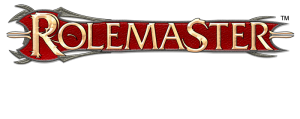I think that the variety of spell casters that Rolemaster provides makes the system very flexible. The profession you choose defines not only the spell lists available but the skills that profession is inclined to buy, illusionists are observant, mystics subtle, mentalists are a bit gungho. The spell lists open to each profession also help define that profession, obviously. If Rolemaster stopped there then it is possible that all magicians would end up the same, all clerics the same and so on.
That is the situation with D&D last time I played it. Every magic user was desperate to get to 5th level so they could cast fireball. If you made that that far then finally you had the fighters’ respect and could do something they couldn’t. Rolemaster doesn’t stop there though. The magic is only just beginning.
There is a really important part of the Spell Law rule book on magical research. What this relates to is creating your own spells to fit into the spell lists you have learned. Most spell lists in Rolemaster do not have one spell for every level. There are gaps in the spell lists so you may have a 1st level spell, a 3rd, 4th, 7th and 10th but no spell available for the other levels. Illusionists for example have no spells at all between 15th and 20th. With spell research you can either fill in the gaps in your spell lists or define new spells to sit alongside the existing ones. There is really no reason not to have two 5th level spells.
It is quite a good starting adventure for a new spell using character to have his master send him some where to complete some research and give him a spell that no one else has. There are loads of really simple things you could do with just first level spells. As an example if the player wanted to play a fire based mage and has Fire Law then researching a Detect Fires spell. Give it the same parameters the other detection law/mastery spells but allows the caster to detect fires through walls, floors and ceilings. This will teach the player the mechanics of researching spell and open them up to the potential.
I have one player that always misses not having ‘magic missile’ in Rolemaster. I think Shockbolt is meant to fulfill that roll but it is not the same. This is one of the things that spell research is meant to address. You want it your way? You got it! As the advertising slogan says.
Researching spells takes a week per level of the spell for spells 1st-5th level and 2 weeks a level for 6th-10th and so on if you are researching a spell to fit into your own lists(in RMC, RMU uses a different formula). In addition to the time you need access to research materials; books, ancient scrolls, other mages research and so on. Here in is the basis of a first adventure, get to a library or another spell caster’s personal library and complete the research, that is the reason for the spell user to leave his master and set out in the world.
With spell research in play you can have two spell casters of the same level and profession, knowing the same spell lists and even freakishly having the same stats and number of power points but playing completely differently and having different abilities because they have researched different aspects of their spell lists.
The rules (in RMC) literally take up less than two pages in Spell Law so this is not a complex, advanced players option despite the fact that many GMs and players treat it that way. The sooner you get your players creating their own spells the sooner you will have them putting their own stamp on their characters. Then of course you have the option of having players teaching spells they have learned to other characters. This only takes a quarter of the time but does make player cooperation really interesting.
Now even with professions, spell lists and their own custom spells Rolemaster has even more to give the magic user. I will continue with that next time.

